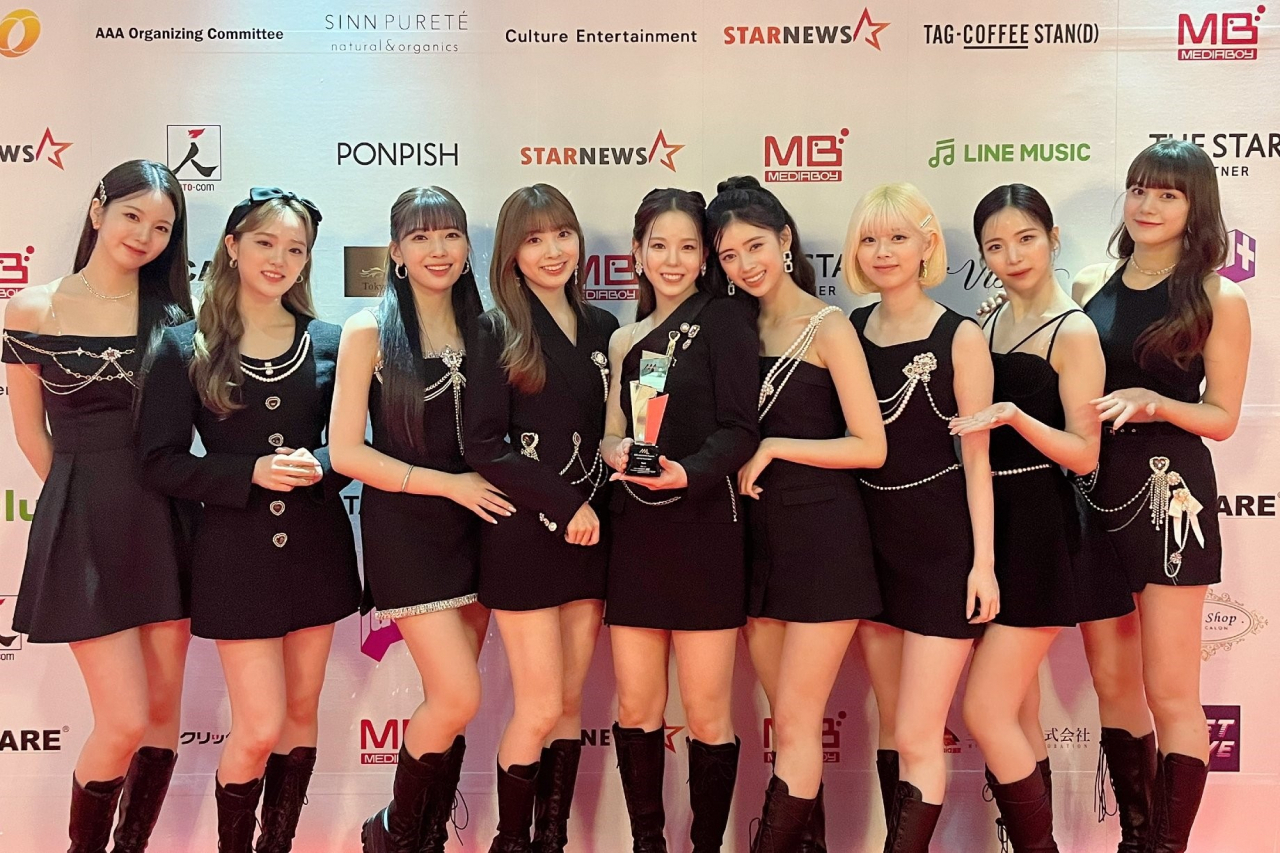
Major agencies and labels in South Korea are directly targeting foreign markets by launching localized idol groups.
With more than 20 years of experience in expanding the K-pop market abroad, K-pop powerhouses created a full-fledged K-pop Hallyu 3.0 era by nurturing idol groups in foreign countries such as Japan and China.
The first generation of the K-pop Korean Wave involved debuting Korean artists outside of the country. The second generation involved mixing foreign members into idol groups to gain fans overseas.
Hybe, the company behind BTS, Seventeen, and Tomorrow X Together, introduced a new boy band called &Team this month through its subsidiary Hybe Labels Japan. Its first Japan-based act consists of nine members from different backgrounds including Japan, Korea, Taiwan and Germany in an effort to make it a global group. Five of them were selected from the singing competition show &Audition-The Howling and the other four were selected from the audition program I-Land.
The group's debut album topped the iTunes top album chart in Japan within a few hours of release.
“We can reduce business operation risks by diversifying our artist portfolio to avoid their concentration in a certain country and to respond to rapidly changing trends,” Hybe CEO Park Ji-won said last month during a conference call.
&Team is not the first foreign-based group to debut from a domestic label.
In 2019, SM Entertainment launched WayV, a China-based group under the NCT unit.
The following year, JYP launched a Japan-based girl group called NiziU.
The band was trained by the K-pop powerhouse and made its debut in December 2020. The group has built a successful fandom and topped album charts in Japan.
CJ ENM, the local entertainment conglomerate that runs the famous reality competition show “Produce 101,” formed the Japan-based boy bands JO1 and INI from the same show running in Japan.

CJ ENM helped the new K-pop groups step over the high threshold of the Japanese market with the program “Produce 101 Japan,” and also by establishing Lapone Entertainment with major Japanese entertainment conglomerate Yoshimoto Kogyo.
These localized superstars proved to be popular, with some including NiziU and JO1 performing next to renowned K-pop idol groups such as Twice, IVE and Le Sserafim at the Japanese public broadcaster NHK’s famous end-of-the-year music show “Kohaku Uta Gassen.”
“JO1 and INI’s competitiveness comes from its K-pop DNA which includes music that has some hip-hop flair, perfectly aligned choreography and trendy styling. They were highly evaluated as they showed off diverse genres from dance to ballad in a single album,” explained CJ ENM Music Business Operations Manager Lim Hee-seok.
According to the local K-pop fandom data observer platform Kpop Radar, key K-pop phrases for 2023 include “Japan, No.1 consumer of K-pop,” and “From artist fandom to K-pop genre.”
Japan jumped from being the fifth-biggest foreign country consumer of K-pop before the pandemic to the biggest in 2022. This is due to new rookie artists debuting in Japan, as well as newly formed idol groups with local members in Japan, according to Kpop Radar.
In addition, the K-pop market -- which had developed around artists’ fandoms -- has now flourished through globalization, with diverse artists performing in many parts of the world and establishing K-pop’s position as a music genre in itself.
Experts say that K-pop’s highly evaluated brand value in the global market is what drives Korean labels to produce overseas-based idol groups.
“As K-pop has earned its name value, foreigners feel like all Korean idol groups’ songs are K-pop, even though they sing in other languages. Because K-pop is so popular, especially in Southeast Asia, the localization strategy of local entertainment agencies is highly likely to be successful,” said Dr. Lee Gyu-tag, a well-known K-pop expert who teaches pop music and media studies at George Mason University Korea.
“The planning ability of Korean labels is what makes K-pop competitive and outstanding in foreign markets such as Japan, the US and even in Arabic-speaking countries," said local music critic Kim Heon-sik.
In other countries, artists are those who create their own work and show it to the public, but Korean labels create idol groups that the public is likely to want by continuously studying idol fans, Kim observed.
"Marketing and advertising is all part of K-pop production. The K-pop industry was criticized at first not giving artists their own freedom, but this is getting better. Agencies are now also forming groups that can produce their own music,” the music critic added.
Over doubts about whether songs sung in foreign languages by foreigners making their debut through Korean agencies can still be called K-pop, experts say because K-pop is not just about nationality, but also the overall styling of the music and idol groups, localized K-pop can still be called K-pop.
“When it comes to the music itself, we need to look at who composed and wrote the music, what kind of management it received, and whether it is dance music with choreography. Fashion and makeup can also be called characteristics of K-pop, so we also need to see if they have been styled in a way that is trending in Korea,” music critic Kim said.
“If you take a look at the history of K-pop, it derived from pop music. But then we threw in some Korean features to turn it into this unique genre. K-pop is becoming a genre, and that is why Billboard created a separate chart for K-pop. K-pop includes everything from music, performance, and character establishment of each group member,” said local music critic Chung Duk-hyun. “Just like how South Korean musicians do diverse music genres such as hip-hop, reggae, and pop music, K-pop has now become a genre that can be performed by musicians overseas.”

![[Herald Interview] 'Amid aging population, Korea to invite more young professionals from overseas'](http://res.heraldm.com/phpwas/restmb_idxmake.php?idx=645&simg=/content/image/2024/04/24/20240424050844_0.jpg&u=20240424200058)



